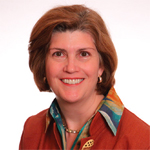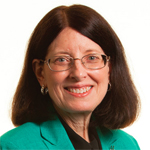More than 10 years ago, New York Times journalist Thomas Friedman opined an old-world perspective that the world is, in fact, flat. In an article published on April 3, 2005, Mr. Friedman contended that “Individuals must, and can, now ask: Where do I fit into the global competition and opportunities of the day, and how can I, on my own, collaborate with others globally?”1
In the past, geographic boundaries and a lack of technology limited the interaction of physicians, health professionals and scientists. Today, technology has replaced barriers with the opportunity to collaborate and share in new, meaningful ways. The ACR/ARHP is committed to evaluating how we might collaborate with others on a global level and, more importantly, to put those ideas into action.
Global Rheumatology Partners
The leadership of the ACR, EULAR (European League Against Rheumatism), PANLAR (Pan American League of Associations for Rheumatology), APLAR (Asia Pacific League of Associations for Rheumatology) and AFLAR (African League of Associations for Rheumatology) met in 2007 to reorganize ILAR (International League of Associations for Rheumatology). ILAR, as the umbrella organization of the Leagues and the ACR, relaunched with a fresh mission to support programs that lead to progress in the practice and education of rheumatology in developing countries.
To date, this successful joint venture has provided $931,191 in funding to 47 projects all over the world. ILAR opens its 2017 call for proposals for funding on July 1.
The ACR continues to collaborate with the Leagues, not only through ILAR activities, but also through a variety of educational platforms, organizational leadership meetings and global membership outreach efforts.
The uniqueness and continued success of the ARHP as an equal partner of the ACR has provided direction to other national rheumatology physician organizations interested in creating similar partnerships with rheumatology health professionals. For example, the British Society for Rheumatology (BSR) and the British Health Professionals in Rheumatology (BHPR) requested assistance in drafting their new governance structure based upon the successful ACR/ARHP model. In 2013, the BSR and BHPR united into one organization and expressed gratitude to the ARHP for its cooperative assistance.
Education International Exchange
Over 50% of attendees at the 2015 ACR/ARHP Annual Meeting were international rheumatologists and rheumatology health professionals. The Annual Meeting not only provides premier education, bringing the most important, cutting-edge science to our members, but also reaches across the globe to enable great discussions, meaningful networking and comradely communication among international colleagues.
The ARHP collaborates annually with EULAR’s Standing Committee on Health Professionals in Rheumatology to develop sessions that are co-presented at the EULAR Annual Congress and the ACR/ARHP Annual Meeting. Now in its 10th year, the 2016 session will focus on health professionals’ approach to pain management of inflammatory arthritis and osteoarthritis. The ARHP is currently in discussions with the BHPR and the Canadian Arthritis Health Professions Association to develop joint sessions at their respective meetings beginning in 2017. Potential session topics include telehealth/mobile health, cultural competencies and inter-professional teams.
International collaborations provide valuable opportunities for officers and members of each organization to share common research and practice interests that transcend the differences in our healthcare delivery systems. We continue to learn much from each other during discussions at our respective annual meetings.
Enriching the International Workforce
One of the many benefits of collaboration is the opportunity to learn from one another. For more than 10 years, the ACR/EULAR Exchange has funded junior investigators to travel to another (foreign) institution. The purpose of this program is to promote the international exchange of clinical and research skills, expertise and knowledge within rheumatology. A great benefit of this program is that many leaders from both the ACR and EULAR have participated, including our current secretary, David Daikh, MD, PhD. The ACR is excited to announce that, beginning in 2016, it is expanding the exchange opportunity by partnering with PANLAR and the Indian Rheumatology Association (IRA). Advanced-year fellows or junior faculty from both Latin America and India will have an opportunity to train for a month at a U.S. rheumatology division. In 2017, it is anticipated that U.S. advanced fellows or junior faculty will have a similar opportunity to train in India and Latin America.
For more than 10 years, the ACR-EULAR Exchange has funded junior investigators to travel to another (foreign) institution. The purpose of this program is to promote the international exchange of clinical & research skills, expertise & knowledge within rheumatology.
Defining Quality
The ACR and EULAR have teamed up to develop classification criteria on a variety of diseases, including rheumatoid arthritis (RA), polymyalgia rheumatica (PMR), gout and macrophage activating syndrome. When the first joint classification criteria for RA were released in 2008, an editorial by leaders of the ACR and EULAR noted the effects of globalization and the importance of collaboration. Although much of the core business of the organizations can be viewed as competitive, such as the meetings, journals and educational products, at the heart of both organizations, the core mission is to forward the clinical, educational and research endeavors of rheumatologists all over the world. Collaboration, if done well, can only improve this core mission.2 The collaboration has continued annually since then, and most recently, the ACR and EULAR team released new PMR guidelines.
Simple Tasks
When the ACR launched its Simple Tasks public relations (PR) campaign, the campaign was domestic. However, its great U.S. success has spread globally, and the ACR was excited to share the PR campaign with our international colleagues; both BSR and APLAR currently hold licensing agreements to use the Simple Tasks campaign. Simple Tasks will expand even further as we engage in a new partnership with EULAR for World Arthritis Day on Oct. 12. It’s exciting that the ACR PR campaign has branched outside of the U.S. to raise awareness and address the impact of rheumatic diseases and the invaluable work of rheumatologists and rheumatology health professionals around the world.
In summary, the ACR/ARHP has generated much international collaboration, but we welcome your ideas to continue and expand our global outreach. We need volunteers to help recruit international members, provide opportunities for our expanding ACR exchanges, and contribute to our educational meetings and publications. Given our past and present successes, future collaborations with colleagues around the world will lead to improved outcomes for our members, our patients and the worldwide rheumatology community.
 Joan M. Von Feldt, MD, MSEd, FACR, FACP, is president of the ACR and a professor of medicine at the Perelman School of Medicine at the University of Pennsylvania. She is also staff physician at the Philadelphia VA Medical Center.
Joan M. Von Feldt, MD, MSEd, FACR, FACP, is president of the ACR and a professor of medicine at the Perelman School of Medicine at the University of Pennsylvania. She is also staff physician at the Philadelphia VA Medical Center.
 Elizabeth A. Schlenk, PhD, RN, is president of the ARHP and an associate professor of nursing at the University of Pittsburgh, where she teaches masters and doctoral students and conducts research.
Elizabeth A. Schlenk, PhD, RN, is president of the ARHP and an associate professor of nursing at the University of Pittsburgh, where she teaches masters and doctoral students and conducts research.
References
- Friedman TL. It’s a flat world, after all. 2005 Apr 3. The New York Times.
- Solomon DH, Tyndall A, Gabriel SE, Dougados M. Rheumatology gone global. Arthritis Rheum. 2008 Oct 15; 59(10):1369–1370.
